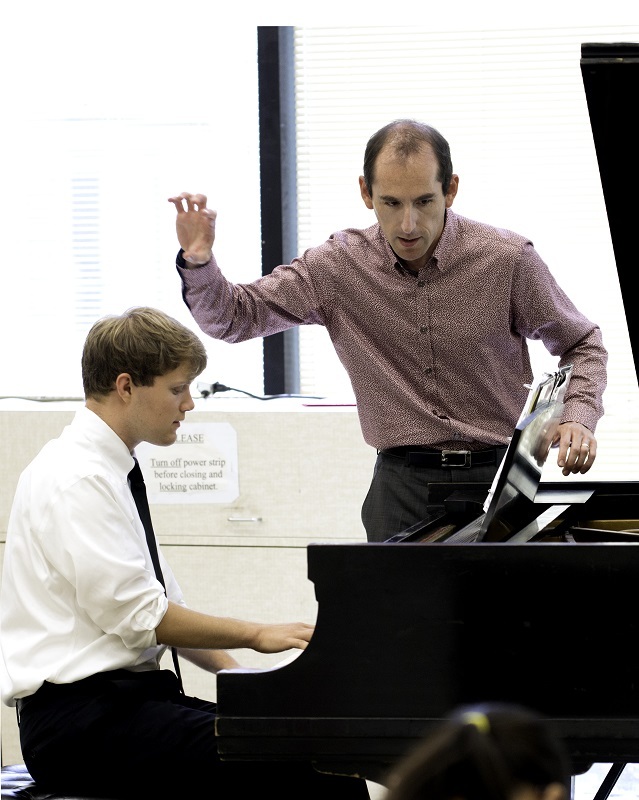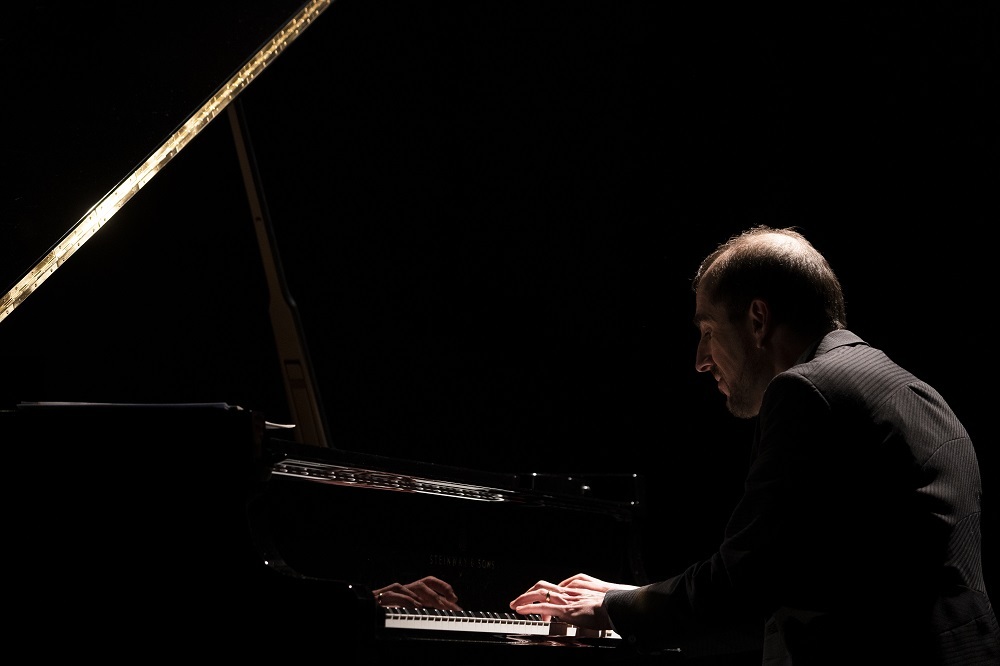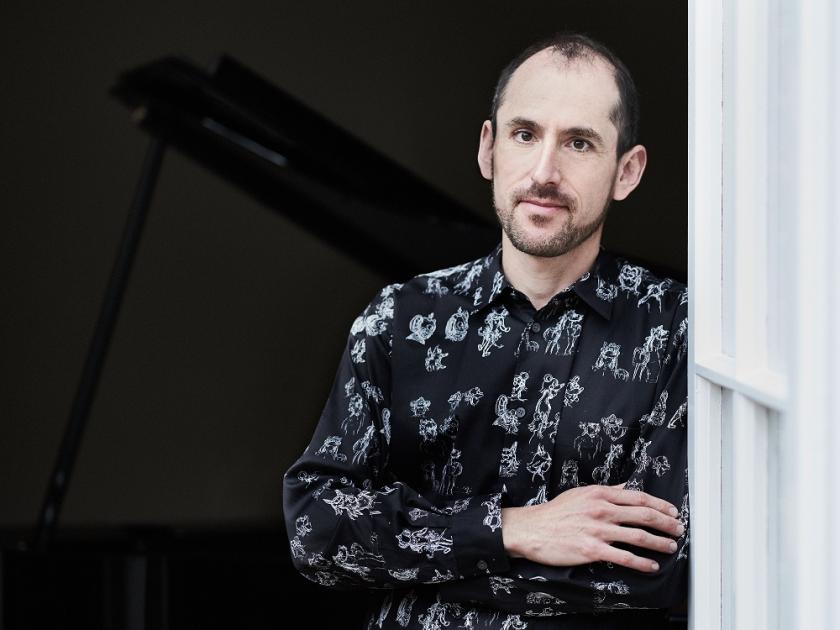There’s an old saying that goes: if life deals you lemons, make lemonade. To say that the COVID-19 pandemic is a lemon would be a huge and trivial understatement – it has had a massive effect on people’s way of life across the globe, it has cost hundreds of thousands of lives and permanently scarred many more physically, psychologically and emotionally. In terms of livelihood, performing artists whose work involves close proximity and live audiences in theatres, concert halls and studios have been particularly badly affected, and it is clear that establishing a new modus operandi for the entertainment sector as a whole will take a long time. As has been the case with most colleagues, my performance diary emptied alarmingly over the weeks and months that followed the start of lockdown.
But I have been lucky both in remaining healthy and in being able to focus on teaching. I have always taken teaching seriously and it has been inextricably linked with my performance career since I started playing professionally. Since the beginning of the lockdown in mid-March, I have been “meeting” my students at the Royal College of Music in virtual space, coaching in real time using a combination of audio and video platforms, and giving feedback on recordings that students submit in advance of a lesson. I have also been able to give online masterclasses, including those for the Online Piano Summer School run by St Mary’s Music School in Edinburgh.
Learning and teaching online pose a new challenge. From the point of view of the student, I would say keyboard players have been affected by lockdown more than other instrumentalists. The broad frequency range and dynamic range of the piano are particularly vulnerable to distortion over a live internet connection. Even making a decent recording to upload needs careful consideration and good equipment. Then there’s instrument quality itself: students often depend on musical institutions for high-quality pianos, unavailable for many weeks while buildings were closed. The alternatives have been unsatisfactory: some of my Royal College students had electronic keyboards to work on at home, at best a mediocre upright piano, while international students living outside student halls were deprived of access to any instrument at all (I lent one of them an upright piano early during the lockdown).
 From my point of view as a teacher, looking at a screen with eyes focused on the same flat surface at unvarying distance is draining. Dealing with low-quality distorted sound is difficult, not to mention the inevitable wavering of connection speeds and consequent extraneous addition of what I quickly termed “internet rubato” (the subject of many jokes among music teachers on social media). And as anyone experienced with conference calling knows, the flow of discussion is straitjacketed; the possibility of interjection, interruption, or quick demonstration isn’t there. I realised quickly that I had to deal with the lemon and find a way of making lemonade – how could online teaching provide not only solace and moral support for students, but also help them continue their progress with minimal disruption?
From my point of view as a teacher, looking at a screen with eyes focused on the same flat surface at unvarying distance is draining. Dealing with low-quality distorted sound is difficult, not to mention the inevitable wavering of connection speeds and consequent extraneous addition of what I quickly termed “internet rubato” (the subject of many jokes among music teachers on social media). And as anyone experienced with conference calling knows, the flow of discussion is straitjacketed; the possibility of interjection, interruption, or quick demonstration isn’t there. I realised quickly that I had to deal with the lemon and find a way of making lemonade – how could online teaching provide not only solace and moral support for students, but also help them continue their progress with minimal disruption?
We had to embrace the new medium. If beautifully regulated Steinway model Bs are not available, you must try to make whatever instrument you have sound as beautiful as possible. This forces you to imagine the sound and to ask questions (what kind of sound do I want here?) rather than basking in the luxury of a rich general piano sound. What follows is a detailed exploration of varieties of touch and articulation that might help to produce the imagined sound – this broadens our technical armoury and enhances our sense of musical possibility at the same time. For pianists this has always been crucial: for as long as pianos have existed, part of the player’s skill set has been to conjure artistry from instruments of variable quality and with which they are barely acquainted. It is a struggle to achieve the imagined ideal from firmly earth-bound reality, but that’s precisely what great performers do.
What if lockdown were to become a virtual laboratory? I asked myself what qualities of musical performance could emerge unscathed from online work. The obvious answer is: those qualities least affected by time delays, sound distortion, poor instruments and recording technology, which are the immanent essences of the music itself (identifying these is a fascinating and elusive task) and our interpretative responses to them. Discussions of interpretation online have been not only proved possible, but surprisingly detailed and thought-provoking.
What do music performance students need most? Putting aside the important question of professionalism (how to present oneself, navigate the complex world of freelance work, develop niches, network, etc), I think there are two big areas to consider. First, they need to acquire techniques and tools that will enable them to express themselves; this encompasses elements such as technique and control of their instrument, vision and communication, composition and improvisation, and the ability to reflect critically on their own work. Second, and this goes hand in hand with the first, they must develop sympathy and understanding towards the expression of others, with skills such as listening, the ability to work well with other people, interpreting the musical ideas and gestures of others, and being able to respond to them.  Self-expression and openness to the narratives of others, when taken together, not only enable inspiring work of many types, but also offer a model for peaceful coexistence in society and for care of our environment. Many disciplines pursued by human beings emphasise one of these two overarching concepts over the other; music is one of relatively few that provides an arena where the two can develop hand-in-hand with mutual interdependence. Classical music is an incredibly rich and fast-evolving tradition – it encompasses history and geography, philology, art, mathematics and science, and therefore connects so many ways of understanding the world around us as well as offering its own ideas and solutions.
Self-expression and openness to the narratives of others, when taken together, not only enable inspiring work of many types, but also offer a model for peaceful coexistence in society and for care of our environment. Many disciplines pursued by human beings emphasise one of these two overarching concepts over the other; music is one of relatively few that provides an arena where the two can develop hand-in-hand with mutual interdependence. Classical music is an incredibly rich and fast-evolving tradition – it encompasses history and geography, philology, art, mathematics and science, and therefore connects so many ways of understanding the world around us as well as offering its own ideas and solutions.
For all these reasons there isn’t a day when I doubt the value of sharing music with others through performance, teaching and discussion. Yet we are living through a time when music education in schools has suffered blow after blow, resource cut after resource cut, and when freelance artists who have had their careers put on hold by the pandemic are finding themselves unsupported and undervalued. This continues precisely at a time of political polarisation and nationalistic resurgence, with social media echo chambers leaving us ill-equipped to be able to listen to and to be sympathetic towards the narratives and expressive voices of others. The study and practice of music, the complex interweaving of sympathetic interpretation and self-expression, has never been more relevant.
In masterclasses at St Mary’s Music School, I have found that in the suggestions of fingerings, hand choreographies, shaping of phrases, touch, balance, emotional responses, and performance psychology, what I have discussed above comes through loudly and clearly. In the words of Friedrich Schlegel quoted at the top of Schumann’s C major Fantasy: "sounding through all notes in the colourful dream of the earth, there is a soft drawn-out note for one who listens secretly."














Add comment